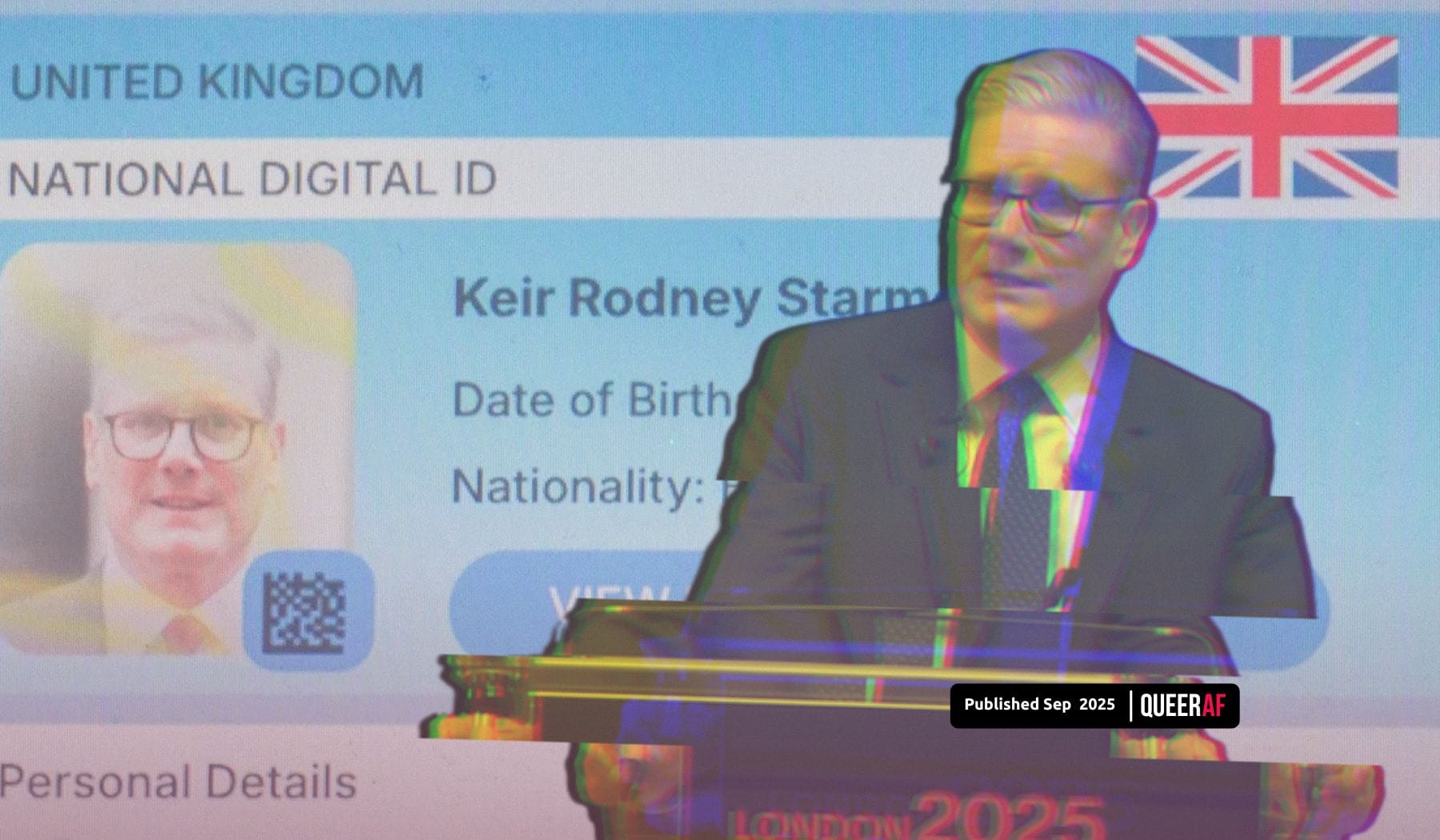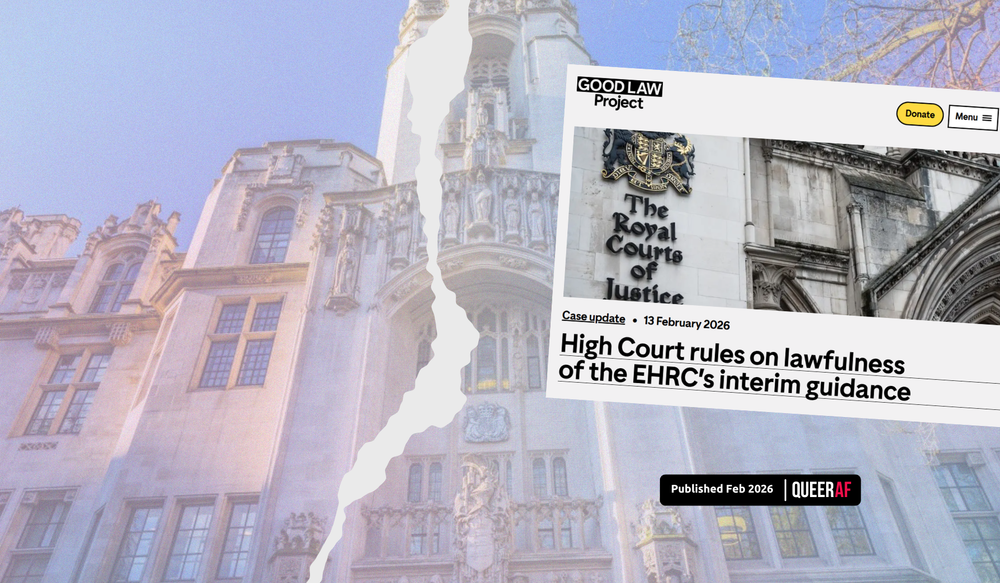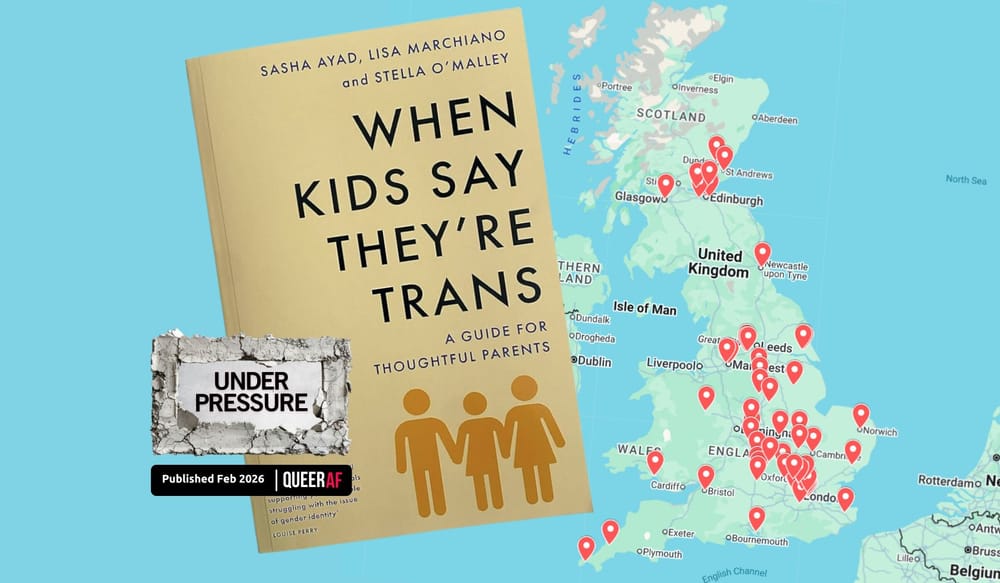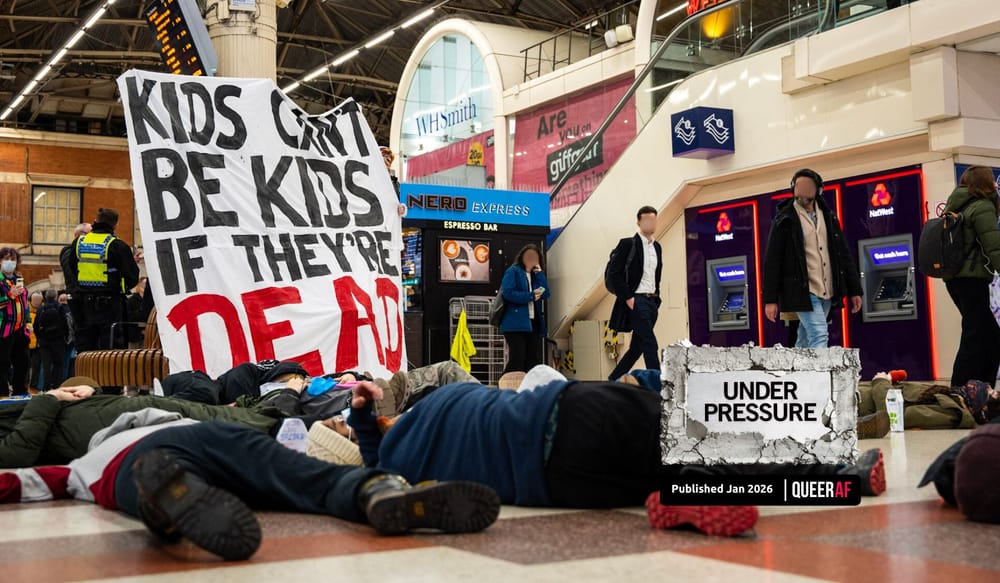TL;DR: Amid plans announced this week for the UK to bring in 'Brit Cards' as digital ID for work, LGBTQIA+ campaigners speak to QueerAF about the "catastrophic" potential that mandatory IDs on smartphones could have in forcing Trans+ people to come out.
New digital IDs in the UK could be "catastrophic" for Trans+ people, who could be forced to out themselves when showing their ID - even if they don't include a sex marker on them.
Keir Starmer announced the new scheme at a gathering of centre-left parties at the Global Progress Action conference. He said the move was designed to 'crack down' on people who don't have the right to work in the UK getting jobs.
If the UK implements these IDs, it would join countries including Bosnia and Herzegovina, United Arab Emirates, China, Greece, France and Afghanistan.
However, within just hours of the announcement, he faced massive opposition to his 'Brit Card' system, with over a million people signing a parliamentary petition not to proceed. While we were monitoring the form, it was rising by around 200-300 new signatures every ten seconds.
The mock-ups shared do not include a sex marker, and only require name, date of birth, nationality or residency status, and a photo. So far, Ministers have stressed there will never be a reason to carry IDs around or to produce them other than for work.
Implications of mandatory ID for LGBTQIA+ people
Keyne Walker, TransActual strategy director, tells QueerAF that even before the plans were announced anti-trans groups have already been lobbying ministers, civil servants and right-wing parliamentarians "to ensure that the single governmental record held lists trans people as their 'birth sex'".
Walker believes this scheme could easily be weaponised and hijacked by MPs who are already trying to push anti-trans policies through Parliament. “It could provide the answer to the fundamental unworkability of bathroom bans… you don't need to ask people to show their birth certificate if instead they have to scan an ID card to take a pee."
Trans legal researcher, Jess O'Thomson, warns that the policy could have a "catastrophic" potential even just with the risk that it outs Trans+ people who haven't yet got the legal recognition they need ahead of applying for a job:
"We know that anti-trans campaigning groups are looking for any opportunity to strip back trans people's rights even further. I have no doubt that these groups will push for digital ID to record "biological sex", forcibly outing trans people, and pushing them further out of public life.
"The real worry is that our government might go along with them, or else an amendment to the legislation could be forced through. These IDs could be catastrophic for the queer community."
The UK's history of ID cards
The UK hasn't had a nationwide mandatory ID scheme since WWII, which ended after Lord Chief Justice Goddard said in a high court that the continuation of the wartime ID card scheme was an "annoyance" to much of the public and "tended to turn law-abiding subjects into law breakers". Winston Churchill's government scrapped them following the ruling and wider criticism over costs and police misuse - BBC
In more recent years, Tony Blair's Labour government legislated for voluntary ID cards in the early 2000s, but the scheme was scrapped in 2011 by the Conservative-led coalition, which argued it was too costly and intrusive.
Analysis: Lists of queer people are incredibly vulnerable to being weaponised against us
"It is a big red flag when authoritarian governments that keep talking about putting people in camps start making lists of queer people," Keyne Walker from Trans Actual remarked to QueerAF.
That, of course, is a big-picture view of this story - and we should be careful to see the news in its context at this stage, given there are scarce details on the scheme.
But the warnings from legal and privacy campaigners come amid a wider slide into authoritarian policies the UK has been adopting in recent years, including plans to make it possible to criminalise wearing a mask at Pride events.
Indeed, from reporting on queer news for the best part of a decade now, I know well that the privacy concerns about the danger lists of queer people can create, which we're already hearing from campaigners are far from new.
Privacy campaigner and founding member of QueerAF Kyle Taylor, says on the surface, digital ID cards may seem innocuous enough - but you need only look to history to see how easily marginalised groups become victims of state-sponsored discrimination or violence:
“The last thing you want is for the government to know who you are and where you are when they decide to, for example, make conversion therapy mandatory. Make no mistake, privacy is power and this puts everyone at risk. Especially our community.”
There has always been a present danger of bad actors weaponising central lists; it's one of the reasons the Covid Track and Trace app was eventually decentralised amid opposition to how it could create a list of disabled people.
This is a development we should watch carefully, especially amid a growing focus and battleground on the right to privacy amid potential segregation of Trans+ people in public life.

To beat misinformation we need a well resourced queer led newsroom that can cut through the noise and get to the facts.
Our publisher is small, but mighty, and that's because of some key principles in the way we produce news for you:
- Our newsletter always has been, and always will be, free of adverts. That keeps us focused on what counts, not what drives clicks
- Readers and members drive our news agenda, because that's what our community deserves: news told both by and for us
- Investing in a new generation of queer journalists, and packing the media full of us, is the best way to address the issue in the sector. Meanwhile, we'll model the change we want to see and prove it's possible to do justice to our community's stories
Journalism is an expensive craft. It takes all week to put together this newsletter, so you can catch up on the queer world in five minutes. And we do that alongside mentoring creatives and lobbying the media sector.
If you believe in our unique model and the change we're bringing to the queer news sector, please upgrade today if you can - and help us continue to grow.
Help us change the media, so we can change the country.











